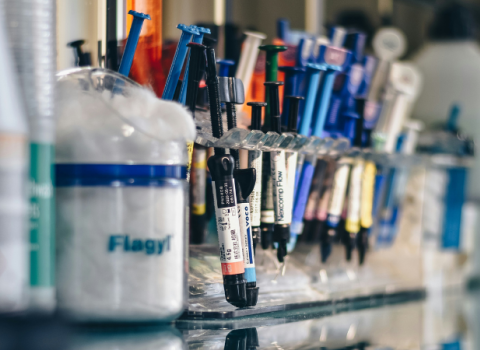Research lead
Research from the Babraham Institute in Cambridge has provided new insights into how the immune system produces T-cells, the white blood cells that are an essential part of the body’s immune surveillance system.
The findings pave the way for a new means of making purified T-cells that gets over one of many hurdles currently faced in the use of T-cells in regenerative medicine and transplantations and, in addition, will open up new avenues of research and applications in drug discovery.
The research demonstrates for the first time how immature T-cells can be grown without the need for supporting feeder cells. This is an important advance because currently there is no technique for separating feeder cells from T-cell preparations, reducing their suitability for use as transplants for patients with damaged immune systems.
The discovery will enable scientists to research fundamental aspects of the development of the immune system. Martin Turner of Babraham’s Laboratory of Lymphocyte Signalling and Development, who led the research team said, “Studying how T-cells develop helps us to understand healthy development, how T-cells acquire specialised functions and what factors can cause lymphomas or other devastating illnesses. A goal of research in the field of regenerative medicine is T-cell reconstitution for therapeutic purposes.”
In the event of chemo/radiotherapy or infections like HIV/AIDS, the body’s ability to replace T-cells is severely compromised, resulting in an abnormally low level of lymphocytes (T cell lymphopenia). Even after bone marrow transplant, T-cell numbers do not recover for at least two years. The Babraham research may facilitate the production of pure tailor-made T-cells for transplantation.
Janas said, “The generation of T cells in culture is currently possible, but requires supporting feeder cells; these mimic the thymus environment but have the disadvantage of contaminating the recovered T cells.” Producing T cells without additional feeder cells requires a greater understanding of the growth factors that are normally involved and the Babraham research provides the first demonstration of T cell development in vitro that does not require supporting feeder cells.
The discovery, which has been patented, could be beneficial in drug discovery and toxicology, where reliable methods to screen and understand the mode of action of pharmacological reagents on lymphocytes are sought, and in a clinical setting where sources of purified T cells free of contaminating accessory cells are required for transplants.





 A unique international forum for public research organisations and companies to connect their external engagement with strategic interests around their R&D system.
A unique international forum for public research organisations and companies to connect their external engagement with strategic interests around their R&D system.